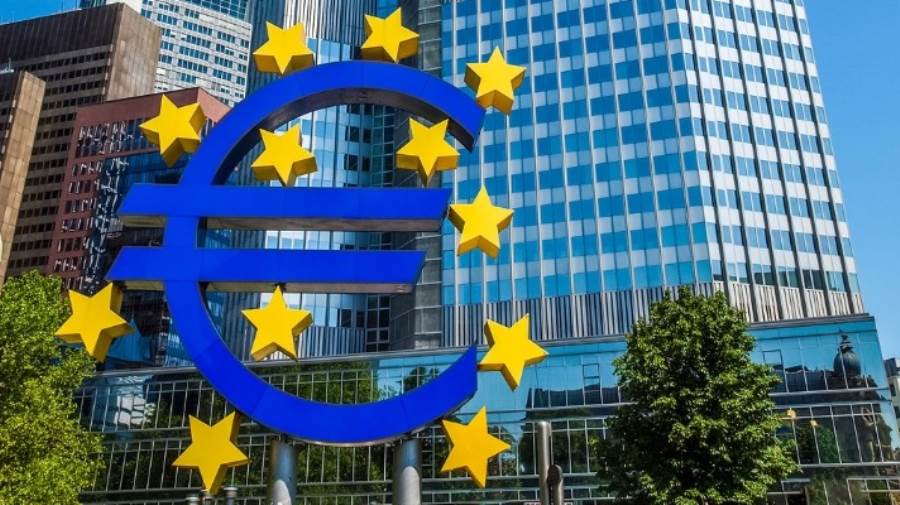Eurozone Growth Forecasts Cut Amid Escalating Global Trade Tensions

The European Commission has significantly downgraded its economic growth forecasts for the Eurozone for 2025 and 2026, citing escalating global trade tensions, primarily due to the comprehensive tariffs imposed by U.S. President Donald Trump. The revisions reflect increasing uncertainty in global trade and weaker external demand, posing substantial risks to economic recovery in the region.

Revised Growth Outlook
The Eurozone’s expected GDP growth for 2025 has been lowered to 0.9%, down from a previous estimate of 1.3%. The projection for 2026 was also reduced from 1.6% to 1.4%. The Commission attributes these revisions to deteriorating global trade conditions and ongoing policy uncertainty, particularly in light of mounting protectionist measures.
Impact of U.S. Tariffs on European Economies
President Trump imposed tariffs of 25% on steel, aluminum, and automobile imports from the European Union and other countries. A further 20% tariff on most EU goods was announced in April, though implementation has been suspended until July to allow space for negotiations. Nevertheless, a basic 10% tariff remains in effect on global imports, including from the EU, continuing to pressure European exporters and manufacturers.
Germany: The Hardest Hit
Germany, the EU’s largest economy, is projected to experience zero growth in 2025—down sharply from the previous forecast of 0.7%. A modest recovery to 1.1% is expected in 2026. According to the Commission, this stagnation is due to weak exports, declining investment, and persistent uncertainty. Despite a €1 billion fiscal stimulus package targeting defense and infrastructure, the German economy remains vulnerable. The International Monetary Fund and the German government have issued similarly pessimistic forecasts.
Inflation and Climate-Related Risks
Inflation in the Eurozone has eased significantly, dropping to 2.2% in April 2025 from record highs in late 2022. The Commission forecasts inflation to decline further to 2.1% in 2025 and 1.7% in 2026, aligning closely with the European Central Bank’s 2% target. However, global trade tensions could reintroduce inflationary pressures in the medium term.
Additionally, the Commission highlighted the increasing economic risks from climate-related disasters, including wildfires and floods, which could further hinder growth prospects across the region.
The revised economic outlook signals that the Eurozone is entering a period of heightened vulnerability amid global trade disruptions and geopolitical instability. To navigate these challenges, the European Union must act decisively to strengthen competitiveness by facilitating business operations, supporting innovation, and investing in strategic sectors and infrastructure.
Policymakers should also diversify trade partnerships and enhance collective bargaining capacity to better manage the implications of protectionist policies. Economic resilience and sustainable growth in the Eurozone will depend on proactive measures to reduce external dependencies and reinforce long-term economic fundamentals.























